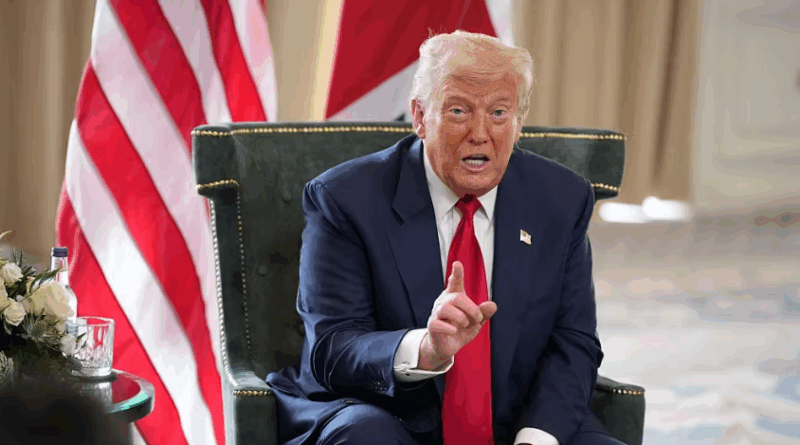Trump Says He’ll Push For ‘Long-Term Extensions’ Of D.C. Federal Takeover
President Donald Trump signaled Wednesday that his administration will push Congress to extend the current 30-day limit on his federalization of the D.C. police force, as his sweeping crackdown on violent crime in the nation’s capital accelerates. Speaking at the Kennedy Center, Trump made clear he believes the emergency powers granted under the District of Columbia Home Rule Act aren’t long enough to make a meaningful dent in the city’s spiraling crime problem.
“We expect to be before Congress very quickly,” Trump told reporters. “We think the Democrats will not do anything to stop crime, but we think the Republicans will do it almost unanimously.” Under current law, the president can take control of the Metropolitan Police Department for up to 30 days without congressional approval, but any longer would require a joint resolution from both chambers.
The president said he intends to seek “long-term extensions” to maintain control of the force while implementing a broader anti-crime strategy. He emphasized that the deployment of National Guard troops and federal agents was already showing results but argued that more time was needed to secure the city. “We’re going to do this very quickly, but we’re going to want extensions,” Trump said. “I don’t want to call a national emergency. If I have to, I will.”
REPORTER: Your federalization of the police has a 30 day limit unless Congress acts to extend it…@POTUS: “We expect to be before Congress very quickly… We’re going to need a crime bill… We’re going to be asking for extensions on that—long-term extensions.” pic.twitter.com/SRuIWBGTHq
— Rapid Response 47 (@RapidResponse47) August 13, 2025
The Republican-controlled House and Senate appear likely to back Trump’s request. Senate Majority Leader John Thune praised the president’s decisive approach, saying, “I’m grateful for his leadership and for this administration’s commitment to protecting communities large and small across America. Washington, D.C., should be a place where people can safely live, visit, work, and raise a family.” House Speaker Mike Johnson echoed the sentiment, calling the move a necessary step to “CLEAN UP Washington, END the crime wave, and RESTORE the beauty of the greatest capital in the world.”
Democrats, however, are unified in their opposition, denouncing the takeover as a dangerous overreach. House Democratic Leader Hakeem Jeffries accused Trump of using the crisis to stage “an unjustified power grab” and warned that the presence of National Guard troops and federal agents could inflame tensions rather than ease them. “This plan to federalize Washington, D.C.’s local police department and unleash the National Guard on the city’s youth and homeless population has no basis in law and will put the safety of the people of our Nation’s capital in danger,” Jeffries claimed.
Since the operation began late last week, federal agents — working alongside D.C. police — have arrested more than 100 people on charges ranging from homicide to firearms and narcotics offenses. On Tuesday alone, 43 arrests were made, with the FBI, DEA, Capitol Police, and ATF all taking part in the coordinated effort. FBI Director Kash Patel called the initial phase “just the beginning,” adding, “When you let good cops be cops, they can clean up our streets — and do it fast.”
The White House says roughly 850 officers and agents have been deployed across known hotspots, with armored vehicles stationed in visible locations to deter crime. The administration is framing the operation as both a short-term push to restore order and a model for other Democrat-run cities plagued by lawlessness.
If Congress grants Trump’s request, the D.C. police takeover could stretch well beyond the current 30-day window, giving the administration time to embed federal oversight into the city’s law enforcement structure. For now, the president is betting that swift arrests, a visible security presence, and political momentum in Congress will be enough to keep his crime-fighting authority in place — and potentially expand it.

